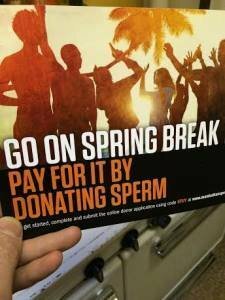“We cannot know who we really are until we know the stories of our lives.” —Daniel Mendelsohn in The Lost: The Search for Six of Six Million
“Do you think we really need to tell our child?” This is a question I hear often from people considering or pursuing egg or sperm donation. Many feel beaten down by years of infertility and want to move on to parenthood feeling confident and secure in their authenticity as parents. They fear that conversations with their children about donor conception will undermine their relationships with these long awaited, cherished children.
For many years, my response to the question was always the same. I took a deep breath, went looking for my most compassionate voice and tried to gently tell them why talking with their child was something they needed to do. I’ll admit that it probably came off as a bit of a lecture, with me cautioning them on the hazards of secrecy. Somehow people took note of what I said and as time went on, they began to come back to me with accounts of the conversations they had with their children. These accounts were sweet, poignant, wise, funny, tender, playful and inspiring. They were never sad or mad or ugly in any way. For me, a light bulb went off: the very conversations that parents feared most were actually not-to-be-missed opportunities.
Shortly after the light bulb went off, I consulted an old friend who is a distinguished child psychotherapist. I said nothing to her about the questions parents ask nor of my responses to them. I simply asked her if she might have any advice to someone who was a parent through donor conception. Without missing a beat she replied, “The parents need to love the story and their children need to know that their parents love the story.”
So how do parents love the story? Many of you come to donor conception after years of disappointment. Your efforts to start or expand your family may have included several failed IVF attempts. Along the way, you’ve been told you have “bad eggs,” or you are “a poor responder” or you “failed the cycle.” It is hard to come to donor conception feeling great about yourselves and about the process. However, it is important to remember that there is another side of things: your future child’s perspective. Try to remember, as you move forward, that your child does not have to experience loss.
The story that you will tell your child is the only story your child will know. You are the authors of that story and you have the opportunity to write it well and tell it proudly. Yours can be a story of resourcefulness and resilience, of dealing with disappointment and moving beyond it to a very positive place. You can pack into your story several important life lessons about how people can cope with adversity, compromise, collaborate and most important, grow their family. As author Bruce Feiler tells it in “The Stories that Bind Us” (NY Times March 2013), your oscillating family narrative offers your children “a strong intergenerational self.” Feiler offers up compelling research that testifies to how being strongly rooted in one’s family history, with detailed knowledge of that history, serves young people well, especially during their teenage years. They have “the security that comes from knowing they are part of something bigger than themselves.”
I encourage people embarking upon donor conception to make decisions that they feel will set the stage for great conversations with their future child or children. For some this means having a known donor or one who is willing to be identified. For many it means joining the Donor Sibling Registry and being able to say to their child, “I knew this might be important to you.” For all, it means chronicling the story from the beginning and preserving all the memories that make the story. As author and professor Joshua Gamson writes in Modern Families, “Stories help things make sense. They put things in an order. This is how it happened. They are also the stuff from which identities are built. Creation stories, in particular, are about selfhood. In telling the story of our becoming, as an individual, a nation, a people.”
And so, to circle back to where I began, yes, for sure parents “need” to tell their children the truth about their origins. From my vantage point, this is an opportunity, not a burden. All parents do right by their children by rooting them securely in their family history. Donor conception offers a helpful reminder to parents that “we cannot really know who we are until we know the stories of our lives.”

